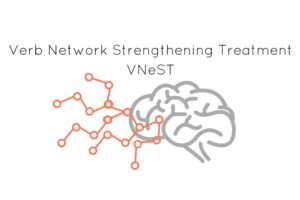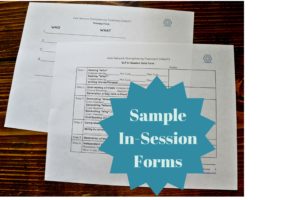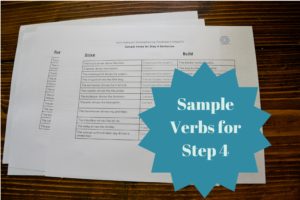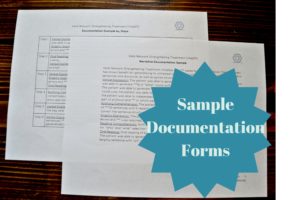If you are like me, you are busy treating patients during the day and can’t absorb a treatment protocol / prep materials / figure out who to use it with / figure out how to word things in documentation… all on your lunch break.
Here’s where my next series comes in: The One Click series. This series will highlight various treatment protocols that are evidence-based, and I will provide everything you need to implement the therapy in just One Click (or 1 download!). They will all include a person-centered section to explain how you can use the materials in a person-centered way.
Today we are talking about Verb Network Strengthening Training (VNeST). I feel a little late to the party as I just started using VNeST this past year! If you’re new to VNeST, check out my free cheat sheet (below!) I’ve also created a VNeST Packet with everything you need to use VNeST in therapy! {From data tracking, to documentation, to stimuli, and more!}
 *Please note the following are my personal notes from reading the research; key references below if you would like to review them yourself.
*Please note the following are my personal notes from reading the research; key references below if you would like to review them yourself.
Who should I use VNeST with?
-VNeST has been used with adults with aphasia. Studies have shown success with moderate-severe to mild aphasia.
-Fluent and nonfluent types of aphasia have shown improvement in VNeST studies.
-Studies excluded those with severe apraxia or severe cognitive challenges. They did include those with no worse than moderate apraxia or no worse than moderate cognitive challenges.
What sort of goals would VNeST address?
-Improved word-finding (spoken or written)
-Improved sentence production
-Improved conversation/discourse
What does the evidence say I should expect?
-Word retrieval could improve for trained and untrained word and sentence level (This is generalization!)
-Improved written word retrieval
-Improved sentence generation and conversation/discourse
How does VNeST relate to a person-centered approach?
-There are no pictures, so a patient generates sentences using words/semantic relationships from their own experiences
-Sentences that are created are more likely to be semantically relevant for the person, because it will tend to be language they usually use
-“Because this treatment allows participants to draw exemplars from daily life, it enhances participant interest and increases the likelihood that therapeutic gains will be personally relevant and potentially directly applicable to daily communicative life” (Edmonds et al. 2009).
What do I need to VNeST?
–FREEBIE ALERT! I’m sharing the Cheat Sheet I made from Dr. Edmond’s protocol article (Definitely read the article! However, I found that I needed notes during the session to make sure I cued in the correct order).
Click Here To Download Cheat Sheet for VNeST –> VNeST Protocol Cheat Sheet
–One Click: Download the VNeST Packet! You are ready to go!
This 12-page download will allow you to do VNeST tomorrow, with no further prep. I adapted the notecard system used in the article (to avoid going through TONS of notecards in a session!) and made a simple page template that can be used instead. I also created the 120 sentences for the 10 verbs as recommended for Step 4 of the protocol! Finally, I created documentation samples you can copy and paste, filling in data from the session.


 What are you waiting for? Let’s start
What are you waiting for? Let’s start